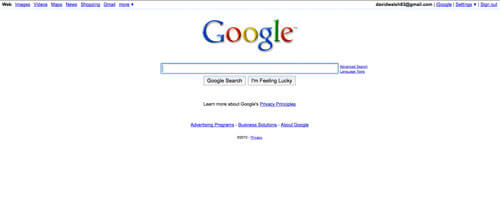Get a Python Package Version
Part of maintaining a Django-based application like MDN's kuma is ensuring Python packages are up to date. I was recently testing an upgrade on a remote system and needed to ensure that a given Python package was at the version number it should be. Here's how I retrieved the package version:
import nose # Nose is a test utility. Replace with your desired package here.
nose.__version__
# Output: 0.3.1
The __version__ property returns the exact version number for a Python package. Some Python packages use a VERSION property as well, but __version__ should be the most reliable.
![5 HTML5 APIs You Didn’t Know Existed]()
When you say or read "HTML5", you half expect exotic dancers and unicorns to walk into the room to the tune of "I'm Sexy and I Know It." Can you blame us though? We watched the fundamental APIs stagnate for so long that a basic feature...
![CSS Filters]()
CSS filter support recently landed within WebKit nightlies. CSS filters provide a method for modifying the rendering of a basic DOM element, image, or video. CSS filters allow for blurring, warping, and modifying the color intensity of elements. Let's have...
![Detect Vendor Prefix with JavaScript]()
Regardless of our position on vendor prefixes, we have to live with them and occasionally use them to make things work. These prefixes can be used in two formats: the CSS format (-moz-, as in -moz-element) and the JS format (navigator.mozApps). The awesome X-Tag project has...
![Google-Style Element Fading Using MooTools or jQuery]()
Google recently introduced an interesting effect to their homepage: the top left and top right navigation items don't display until you move your mouse or leave the search term box. Why? I can only speculate that they want their homepage as...





Every once in a while a package might not define either
VERSIONor__version__, since they’re conventions, not required. You can always get the installed version with pkg_resources, though:>>> import pkg_resources >>> pkg_resources.get_distribution("PIL").version '1.1.7'@James,
__version__is recommended by PEP 396